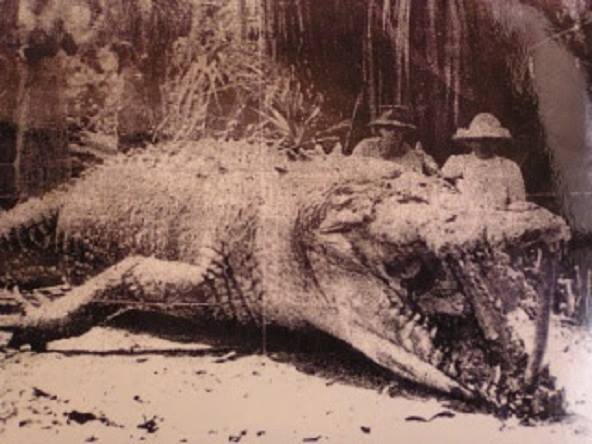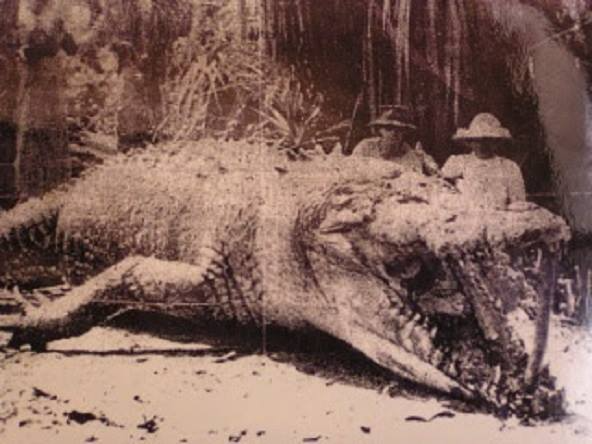Alligators are one of the most fascinating and intimidating creatures on the planet. With their powerful jaws and armored skin, they may seem invincible. However, just like any other living being, alligators eventually meet their demise. But how do these apex predators meet their end?
The answer may surprise you. Alligators can die from a variety of causes, including natural aging, disease, and even from battles with other alligators. In this article, we will explore the different ways alligators meet their end and what factors can contribute to their mortality. So, let’s dive in and discover the mysterious world of alligator mortality.
Alligators can die from various reasons, such as disease, habitat loss, hunting, and old age. The most common cause of death for alligators is hunting, as they are hunted for their skin and meat. Disease is also a significant concern, with infections such as West Nile virus and fungal diseases being common. Habitat loss due to human activities also poses a threat to their survival. Alligators can live for up to 50 years in the wild, but eventually, they may succumb to old age.

How Do Alligators Die?
Alligators are known for their incredible strength and resilience, but like all living beings, they eventually reach the end of their life cycle. In this article, we will explore the different factors that can contribute to the death of an alligator.
Natural Causes of Death for Alligators
Alligators can live for several decades in the wild, but eventually, they will succumb to natural causes of death. One of the most common causes of death for alligators is old age. As alligators age, their bodies become less efficient at processing food and fighting off disease, making them more susceptible to illness and injury.
Another natural cause of death for alligators is predation. Despite their reputation as apex predators, alligators can fall prey to larger animals such as crocodiles, sharks, and even humans. Additionally, alligators can become injured or sick from fighting with other alligators or from ingesting toxins in their environment.
Environmental Factors
Environmental factors can also play a role in the death of alligators. One of the biggest threats to alligators is habitat loss. As wetlands and swamps are drained for development or agriculture, alligators lose their homes and are forced to move to new areas, which can be dangerous and stressful.
Pollution is another environmental factor that can harm alligators. Chemicals and toxins in the water and air can accumulate in the tissues of alligators and cause illness or death. Additionally, climate change can affect the availability of food and water for alligators, leading to malnourishment and dehydration.
Human Interaction
Human interaction can also contribute to the death of alligators. Alligators are often hunted for their hides, meat, and other body parts, which can lead to population declines. Additionally, alligators can become aggressive towards humans if they feel threatened or if people feed them, which can lead to dangerous encounters and even death.
Another way that humans can impact alligator populations is through the introduction of non-native species. For example, Burmese pythons, which are not native to Florida, have been known to prey on alligators, which can have a significant impact on the alligator population.
Benefits of Alligators
Despite the potential dangers that alligators can pose to humans, they also provide many benefits. Alligators are an important part of the ecosystem, helping to control populations of fish, turtles, and other animals. Additionally, alligators are a valuable resource for ecotourism, drawing visitors from all over the world to see these fascinating creatures in their natural habitat.
Alligators vs. Crocodiles
Alligators and crocodiles are often confused with each other, but there are some key differences between the two species. One of the most noticeable differences is the shape of their snouts. Alligators have a broad, rounded snout, while crocodiles have a longer, more pointed snout.
Additionally, alligators are generally found in freshwater habitats, while crocodiles can be found in both freshwater and saltwater habitats. Finally, alligators are generally smaller than crocodiles, with the largest alligator on record measuring just over 19 feet long, while the largest crocodile on record was over 23 feet long.
Alligator Farming
Alligator farming is a growing industry in the United States, with over 200,000 alligators being raised on farms each year. These alligators are primarily raised for their meat and hides, which are sold to restaurants and fashion companies. Alligator farming has helped to reduce pressure on wild alligator populations, but it is not without controversy, as some animal welfare advocates argue that the conditions on alligator farms are inhumane.
Conclusion
Alligators are fascinating creatures that play an important role in their ecosystems. While they are often feared by humans, they are also valued for their ecological and economic contributions. Understanding the factors that can contribute to the death of alligators is important for ensuring that we can continue to coexist with these amazing animals.
Frequently Asked Questions
Learn how alligators die and discover interesting facts about their lifespan and the factors that affect their survival.
What is the average lifespan of an alligator?
Alligators are known to live for several decades in the wild. On average, they can live up to 35-50 years old. However, some alligators have been known to live up to 70 years in captivity.
Their longevity can be attributed to their ability to adapt to their environment, their low metabolic rate, and their powerful immune system that protects them from diseases and infections.
What are the natural predators of alligators?
Alligators are apex predators and are at the top of their food chain. However, they are not immune to predation. Some of their natural predators include large birds such as eagles and hawks, panthers, bears, and humans.
Humans are the biggest threat to alligator populations as they often hunt them for their meat, skin, and other body parts. Habitat loss and pollution also pose a significant threat to their survival.
How do alligators die in the wild?
Alligators die from a variety of causes in the wild. Some of the most common causes of death include predation, disease, starvation, and habitat destruction. Alligators that are injured or sick are more vulnerable to predation and starvation which can lead to their death.
Additionally, alligators can die from injuries sustained during territorial fights or from ingesting foreign objects such as fishing hooks or plastic debris. Severe weather events such as hurricanes and droughts can also impact their survival.
How do alligators die in captivity?
Alligators in captivity can die from a variety of causes such as stress, poor diet, and lack of exercise. Captive alligators can develop health issues such as obesity, heart disease, and respiratory problems if they are not provided with proper care and a suitable environment.
Additionally, alligators in captivity can suffer from injuries sustained during transport or handling. Some alligators can also die from infections or diseases that are common in captive settings.
What is the biggest threat to alligator populations?
The biggest threat to alligator populations is habitat loss and degradation. Human activities such as urbanization, agriculture, and industrial development have led to the destruction of wetlands and other habitats that alligators rely on.
Additionally, alligators are often hunted for their meat, skin, and other body parts. Climate change and pollution also pose significant threats to their survival. Conservation efforts such as habitat restoration, population management, and public education are crucial to the long-term survival of alligator populations.
The Secret of Regeneration in… Alligators
In conclusion, alligators, like any other living creatures, eventually die. However, their lifespan can vary depending on several factors such as habitat, genetics, and environmental conditions. It’s fascinating to learn that alligators have been around for millions of years and have survived multiple extinction events.
While alligators are apex predators in their ecosystems, they are not immune to threats such as habitat loss and human activities. It’s important to respect their natural habitat and avoid disturbing them in their environment to ensure their longevity.
Through scientific research and conservation efforts, we can continue to learn about alligators and protect them from potential threats. Despite their intimidating appearance, alligators play a vital role in their ecosystems and are an essential part of the natural world.


